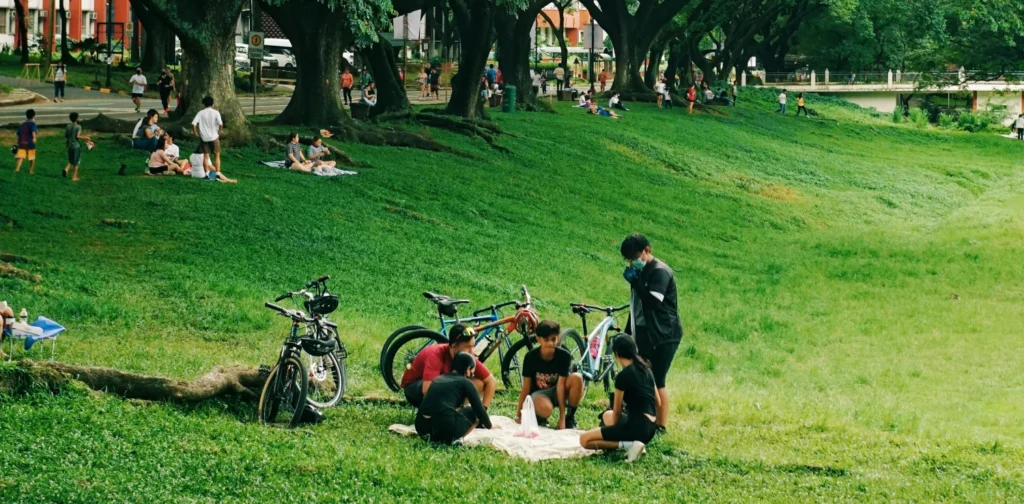A Social Animal: Recognizing social connection as a pillar of health and wellbeing

Photo: Alexis Ricardo Alaurin on Pexels.
“Man is by nature a social animal,” philosopher Aristotle said. Yet, people are increasingly struggling to connect socially with others, despite improved digital connectivity across the globe. This underscores the importance of understanding and promoting social connection and social health as an integral part of overall human wellbeing.
Prevalent Social Disconnection
As humans, it is in our nature to connect with other people. The World Health Organization (WHO) defined social connection as the way people relate to and interact with one another in various forms and shapes. The term encompasses several dimensions, including the variety of relationships and roles, the way support is received and perceived, as well as the positive and negative aspects that arise from these connections.
The lack of social connection can lead to social isolation and loneliness. Across the globe, many people struggle to form meaningful connections with others. While social isolation and loneliness can affect anyone, certain groups in society are more susceptible.
Older people, for instance, are particularly prone to social isolation and loneliness. This occurs as they tend to participate less in social activities, often due to a lack of supportive facilities and infrastructure. Meanwhile, young people have expressed difficulties in socializing after the COVID-19 pandemic lockdowns. A study across five European countries even found that the pandemic has shifted the age profile of loneliness to younger people.
These days, social isolation and loneliness are increasingly being recognized as a priority public health problem and policy issue across all age groups. For instance, the lack of recognition of social health in society has a significant impact on mortality. WHO reports that loneliness accounts for approximately 871,000 deaths each year between 2014 and 2019. Furthermore, social disconnection also exacerbates the risk of chronic physical illnesses like cardiovascular diseases, mental health issues such as depression and anxiety, and cognitive decline among older people.
Causes and Factors
But why is it that we, as social beings, have trouble with being social?
Social connection, and consequently, social isolation and loneliness, are driven by a multitude of complex factors that include individual, interpersonal, community, and societal aspects. The WHO Commission on Social Connection’s landmark report states that while there is no conclusive information on previous and recent trends, certain factors can increase the risk of individuals experiencing social disconnection.
One example is industrialization and urbanization, which have led to mass solitary living in urban areas. Living alone, especially in areas with limited public transportation facilities and a lack of communal spaces, poses a significant barrier to forming social connections with others. Additionally, unhealthy capitalistic societies that often lend to overwork and the ‘hustle culture’ barely allow for limited personal time to socialize.
While this gap can be amended with socializing online, experts warn of caution to safeguard the physical, mental, and cognitive wellbeing of young people, in relation to excessive digital technology use. A deeper understanding of this issue is necessary to fully comprehend the impact of digital technologies on social connections.
At the societal level, other factors that can exacerbate the risk of social isolation and loneliness include secularization and the decline of religion and colonialism against Indigenous Peoples. The decline of religion means that people tend to spend less time in religious gatherings, which can cause a lack of belonging and connectedness found in a community. Meanwhile, multigenerational colonialism experienced by Indigenous Peoples in the form of forced relocation, erasure of Indigenous traditions, and discrimination can erode the relationship and sense of belonging between Indigenous Peoples and their identity and community.
Furthermore, personal traits and tendencies also contribute to loneliness. For example, the WHO report states that neuroticism, where people are more prone to experiencing negative emotions, is linked to higher rates of loneliness. Low societal, emotional, and structural support for vulnerable groups, including people with disabilities and LGBTQ+ individuals, also puts them at very high risk of experiencing isolation and loneliness.
Recognizing Social Connection
Beyond physical health, our social health determines how we act, grow, and develop in society. Therefore, key stakeholders in governments, businesses, and civil society organizations must collectively recognize and integrate social health as part of their decision-making, strategies, and innovations.
Developing a national framework related to social health and increasing research capacity to identify challenges and opportunities on the ground are some of the systemic approaches to tackle social disconnection. Additionally, addressing the factors that hinder people from socializing is also crucial, such as expanding quality and accessible public transport systems, fostering community activities like community sports, and adopting a compressed 4-day workweek system like the one implemented in the UK and others.
At the individual level, we must also recognize our shared connection with other people, as well as the environment, as an indispensable part of life on Earth. We can start by actively reaching out to others, sharing a meal, and understanding our duty and bond to each other. Afterall, we owe it to each other to create a beautiful and safe world for our and future generations.
Editor: Nazalea Kusuma


 Indian Gig Workers Push Back Against 10-Minute Delivery Service Strain
Indian Gig Workers Push Back Against 10-Minute Delivery Service Strain  Call for Governance: Grassroots Initiatives Look to Scale Efforts to Conserve Depleting Groundwater
Call for Governance: Grassroots Initiatives Look to Scale Efforts to Conserve Depleting Groundwater  Integrating Environment, Climate Change, and Sustainability Issues into Education Systems
Integrating Environment, Climate Change, and Sustainability Issues into Education Systems  Finally Enforced: Understanding the UN High Seas Treaty
Finally Enforced: Understanding the UN High Seas Treaty  Risks and Opportunities of Submarine Communication Cables for Sustainable Development
Risks and Opportunities of Submarine Communication Cables for Sustainable Development  Rising Attacks and Violence Against Land and Environmental Defenders
Rising Attacks and Violence Against Land and Environmental Defenders